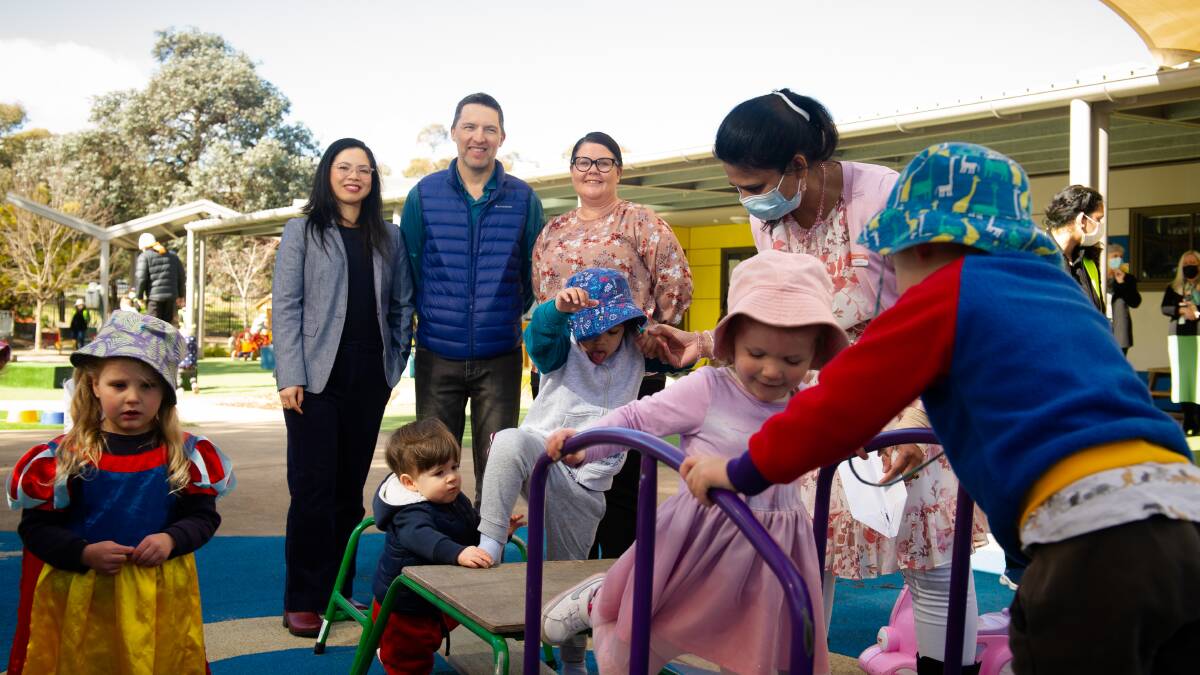
The work of a early childhood educator may seem like child's play, but new research from the University of Canberra shows employees in the sector are struggling with their mental health.
Subscribe now for unlimited access.
$0/
(min cost $0)
or signup to continue reading
Communities at Work has embarked on a partnership with the university to understand the challenges educators face in maintaining wellbeing.
A survey of 108 educators across 12 centres found they were suffering higher levels of psychological distress compared to the general population.
University of Canberra researchers from the faculty of education, adjunct assistant professor Jennifer Ma and assistant professor Thomas Nielsen, will be conducting professional development with the educators to improve this situation.
"There's robust evidence showing that if you want well students ... we really want to consider the importance of having well teachers," assistant professor Nielsen said.
"It's an ongoing thing to manage wellbeing to improve wellbeing in any setting, including Communities at Work education settings."
READ MORE:
Having a sense of purpose through contributing to society and helping others has many health benefits.
Educators know they have an important role in the lives of children and families, but they often give so much of themselves that they feel stressed and anxious.
"There are actually some evidence-based principles for how we look after ourselves that are also universal, such as sleep, exercise, or autonomy, having a bit of creativity in your life," associate professor Nielsen said.
"It's important that it's not the same ones, the same balls that are dropped all the time because then that's when we start having trouble with our health, physiologically and psychologically."
Taylor Child Care and Education Centre manager Farrah Junaid said it was not surprising that educators were reporting high levels of psychological distress.
"We live and breathe in the industry. We are here every day. Even during the pandemic, we were expected to work every day. So no, it was not a surprise at all," she said.
Mrs Junaid still faces the daily staffing struggle with high numbers of employees on sick leave and some leaving the industry because of other caring commitments. She was hoping the professional learning would help her team at a difficult time.
"I think the research will help us give us those strategies, those tools to openly talk about mental health and wellbeing in the organisation ... We are excited to see what is in store for us with the partnership."
Communities at Work director of children's services Kellie Stewart said some educators had left the system because of the pressure of the pandemic, while disruptions to migration had reduced the number of new people coming into the workforce.
She said the organisation was hoping to retain their current staff.
"We think that a fundamental role for the organisation is to provide all avenues that we can possibly provide for the health and wellbeing of our educators."
We've made it a whole lot easier for you to have your say. Our new comment platform requires only one log-in to access articles and to join the discussion on The Canberra Times website. Find out how to register so you can enjoy civil, friendly and engaging discussions. See our moderation policy here.


